When I planned my trip to India, it sparked a reading spree like never before! I read books set in India that spanned both geography and time, accompanying me on my journey via trains, planes and rickshaws across the country.
Some of my all-time favorite books set in India include the classic A Suitable Boy (a commitment at 1,349 pages) and the heartbreaking The Lowland set in Kolkata. I can remember carrying around the former in print form; a rather hefty volume for my daily commute!
This list includes stories that help to capture the diverse culture of this colorful country, fueling my fascination with this incredible place. These novels taught me more about concepts such as caste, honor and partition than any guidebook, while discovering some delicious cuisines and helpful local phrases along the way.
Please note: This post contains affiliate links. For more information, see my disclosures here.
Want two of these Books Set in India for free?
- Try Amazon Audible free for 30 days and get 2 free audiobooks which you can play on loads of devices. Ideal for listening while gazing out the window. Best of all, you can cancel at any time and you can keep your books forever!
Bookstores In New Delhi
In New Delhi my favorite independent bookstore discovery was the Full Circle Book Shop in Khan Market. The store has a fantastic selection of English books set in India and I ended up leaving with a very heavy bag. Attached to the store is Cafe Turtle a hangout for locals and expats alike. The outdoor patio is the perfect spot to get absorbed in a book.
Books Set In India
1.
A Suitable Boy
By Vikram Seth, 1993
Vikram Seth’s novel is, at its core, a love story: Lata and her mother, Mrs. Rupa Mehra, are both trying to find — through love or through exacting maternal appraisal — a suitable boy for Lata to marry. Set in the early 1950s, in an India newly independent and struggling through a time of crisis, A Suitable Boy takes us into the richly imagined world of four large extended families and spins a compulsively readable tale of their lives and loves.
2.
The God of Small Things
By Arundhati Roy, 1997
The year is 1969. In the state of Kerala, on the southernmost tip of India, fraternal twins Esthappen and Rahel fashion a childhood for themselves in the shade of the wreck that is their family. Their lonely, lovely mother, Ammu, (who loves by night the man her children love by day), fled an abusive marriage to live with their blind grandmother, Mammachi (who plays Handel on her violin), their beloved uncle Chacko (Rhodes scholar, pickle baron, radical Marxist, bottom-pincher), and their enemy, Baby Kochamma (ex-nun and incumbent grandaunt).
3.
The Alchemy of Desire
By Tarun Tejpal, 2005
In turn-of-the-millennium India, a penniless would-be writer halts work on his novel only to feed his ceaseless desire for his beautiful wife. Then a chance occurrence moves the lovers to a sprawling old house in a mist-shrouded spur of the lower Himalayas, where a set of diaries written by a glamorous American adventuress is uncovered during renovations. Her words irresistibly draw the writer away from his beloved, thrusting him through the hole of history into another world and time, revealing dark secrets and overturning all certainties.
4.
Shantaram
By Gregory David Roberts, 2003
“It took me a long time and most of the world to learn what I know about love and fate and the choices we make, but the heart of it came to me in an instant, while I was chained to a wall and being tortured.”
So begins this epic, mesmerizing first novel set in the underworld of contemporary Bombay.
5.
Midnight’s Children
By Salman Rushdie, 1981
Born at the stroke of midnight, at the precise moment of India’s independence, Saleem Sinai is destined from birth to be special. For he is one of 1,001 children born in the midnight hour, children who all have special gifts, children with whom Saleem is telepathically linked.
But there has been a terrible mix up at birth, and Saleem’s life takes some unexpected twists and turns. As he grows up amidst a whirlwind of triumphs and disasters, Saleem must learn the ominous consequences of his gift, for the course of his life is inseparably linked to that of his motherland, and his every act is mirrored and magnified in the events that shape the newborn nation of India. It is a great gift, and a terrible burden.
6.
The Lowland
By Jhumpa Lahiri, 2013
Epic in its canvas and intimate in its portrayal of lives undone and forged anew, The Lowland is a deeply felt novel of family ties that entangle and fray in ways unforeseen and unrevealed, of ties that ineluctably define who we are.
7.
Interpreter of Maladies
By Jhumpa Lahiri, 1999
Navigating between the Indian traditions they’ve inherited and the baffling new world, the characters in Jhumpa Lahiri’s elegant, touching stories seek love beyond the barriers of culture and generations. In “A Temporary Matter,” published in The New Yorker, a young Indian-American couple faces the heartbreak of a stillborn birth while their Boston neighborhood copes with a nightly blackout. In the title story, an interpreter guides an American family through the India of their ancestors and hears an astonishing confession. Lahiri writes with deft cultural insight reminiscent of Anita Desai and a nuanced depth that recalls Mavis Gallant.
8.
The White Tiger
By Aravind Adiga, 2008
The white tiger of this novel is Balram Halwai, a poor Indian villager whose great ambition leads him to the zenith of Indian business culture, the world of the Bangalore entrepreneur. On the occasion of the president of China’s impending trip to Bangalore, Balram writes a letter to him describing his transformation and his experience as driver and servant to a wealthy Indian family, which he thinks exemplifies the contradictions and complications of Indian society.
9.
A Fine Balance
By Rohinton Mistry, 1995
Set in mid-1970s India, A Fine Balance is a subtle and compelling narrative about four unlikely characters who come together in circumstances no one could have foreseen soon after the government declares a ‘State of Internal Emergency’. It is a breathtaking achievement: panoramic yet humane, intensely political yet rich with local delight; and, above all, compulsively readable.
10.
A Passage To India
By E.M. Forster, 1924
Among the greatest novels of the twentieth century and the basis for director David Lean’s Academy Award–winning film, A Passage to India unravels the growing racial tension between Indians, uneasy at best with colonial power, and the British, largely ignorant and dismissive of the society they’re infiltrating. A sudden moment of confusion results in a devastating series of events that threatens to ruin a man’s life, revealing just how deeply—and swiftly—prejudice has taken root.
11.
The Inheritance of Loss
By Kiran Desai, 2006
In a crumbling, isolated house at the foot of Mount Kanchenjunga lives an embittered old judge who wants to retire in peace when his orphaned granddaughter Sai arrives on his doorstep. The judge’s chatty cook watches over her, but his thoughts are mostly with his son, Biju, hopscotching from one New York restaurant job to another, trying to stay a step ahead of the INS, forced to consider his country’s place in the world.
12.
City of Djinns
By William Dalrymple, 1993
Sparkling with irrepressible wit, City of Djinns peels back the layers of Delhi’s centuries-old history, revealing an extraordinary array of characters along the way-from eunuchs to descendants of great Moguls. With refreshingly open-minded curiosity, William Dalrymple explores the seven “dead” cities of Delhi as well as the eighth city-today’s Delhi. Underlying his quest is the legend of the djinns, fire-formed spirits that are said to assure the city’s Phoenix-like regeneration no matter how many times it is destroyed. Entertaining, fascinating, and informative, City of Djinns is an irresistible blend of research and adventure.
At the heart of this vibrant saga is a vast ship, the Ibis. Its destiny is a tumultuous voyage across the Indian Ocean; its purpose, to fight China’s vicious nineteenth-century Opium Wars. As for the crew, they are a motley array of sailors and stowaways, coolies and convicts. In a time of colonial upheaval, fate has thrown together a diverse cast of Indians and Westerners, from a bankrupt raja to a widowed tribeswoman, from a mulatto American freedman to a freespirited French orphan. As their old family ties are washed away, they, like their historical counterparts, come to view themselves as jahaj-bhais, or ship-brothers. An unlikely dynasty is born, which will span continents, races, and generations. The son of a zookeeper, Pi Patel has an encyclopedic knowledge of animal behavior and a fervent love of stories. When Pi is sixteen, his family emigrates from India to North America aboard a Japanese cargo ship, along with their zoo animals bound for new homes. The ship sinks. Pi finds himself alone in a lifeboat, his only companions a hyena, an orangutan, a wounded zebra, and Richard Parker, a 450-pound Bengal tiger. Soon the tiger has dispatched all but Pi, whose fear, knowledge, and cunning allow him to coexist with Richard Parker for 227 days while lost at sea. The Namesake takes the Ganguli family from their tradition-bound life in Calcutta through their fraught transformation into Americans. On the heels of their arranged wedding, Ashoke and Ashima Ganguli settle together in Cambridge, Massachusetts. An engineer by training, Ashoke adapts far less warily than his wife, who resists all things American and pines for her family. When their son is born, the task of naming him betrays the vexed results of bringing old ways to the new world. Named for a Russian writer by his Indian parents in memory of a catastrophe years before, Gogol Ganguli knows only that he suffers the burden of his heritage as well as his odd, antic name. A reimagining of the world-famous Indian epic, the Mahabharat—told from the point of view of an amazing woman. Relevant to today’s war-torn world, The Palace of Illusions takes us back to a time that is half history, half myth, and wholly magical. Narrated by Panchaali, the wife of the legendary Pandavas brothers in the Mahabharat, the novel gives us a new interpretation of this ancient tale. Annawadi is a makeshift settlement in the shadow of luxury hotels near the Mumbai airport, and as India starts to prosper, Annawadians are electric with hope. Abdul, a reflective and enterprising Muslim teenager, sees “a fortune beyond counting” in the recyclable garbage that richer people throw away. Asha, a woman of formidable wit and deep scars from a childhood in rural poverty, has identified an alternate route to the middle class: political corruption. With a little luck, her sensitive, beautiful daughter – Annawadi’s “most-everything girl” – will soon become its first female college graduate. A Buddhist monk takes up arms to resist the Chinese invasion of Tibet – then spends the rest of his life trying to atone for the violence by hand printing the best prayer flags in India. A Jain nun tests her powers of detachment as she watches her best friend ritually starve herself to death. Nine people, nine lives; each one taking a different religious path, each one an unforgettable story. William Dalrymple delves deep into the heart of a nation torn between the relentless onslaught of modernity and the ancient traditions that endure to this day. A magnificent romantic/historical/adventure novel set in India at the time of mutiny. The Far Pavilions is a story of 19th Century India, when the thin patina of English rule held down dangerously turbulent undercurrents. It is a story about and English man – Ashton Pelham-Martyn – brought up as a Hindu and his passionate, but dangerous love for an Indian princess. It’s a story of divided loyalties, of tender camaraderie, of greedy imperialism and of the clash between east and west. To the burning plains and snow-capped mountains of this great, humming continent, M.M. Kaye brings her quite exceptional gift of immediacy and meticulous historical accuracy, plus her insight into the human heart. The 1947 Partition of India is the backdrop for this powerful novel, narrated by a precocious child who describes the brutal transition with chilling veracity. Young Lenny Sethi is kept out of school because she suffers from polio. She spends her days with Ayah, her beautiful nanny, visiting with the large group of admirers that Ayah draws. It is in the company of these working class characters that Lenny learns about religious differences, religious intolerance, and the blossoming genocidal strife on the eve of Partition. As she matures, Lenny begins to identify the differences between the Hindus, Moslems, and Sikhs engaging in political arguments all around her. Lenny enjoys a happy, privileged life in Lahore, but the kidnapping of her beloved Ayah signals a dramatic change. Soon Lenny’s world erupts in religious, ethnic, and racial violence. By turns hilarious and heartbreaking, the domestic drama serves as a microcosm for a profound political upheaval. When twenty-something reporter Miranda Kennedy leaves her job in New York City and travels to India with no employment prospects, she longs to immerse herself in the turmoil and excitement of a rapidly developing country. What she quickly learns in Delhi about renting an apartment as a single woman—it’s next to impossible—and the proper way for women in India to ride scooters—perched sideways—are early signs that life here is less Westernized than she’d counted on. An unexpected relationship turns into an unconventional adventure, as full-time traveler Colin Wright falls for an Icelandic girl who tests his ideas about relationships and becomes a partner-in-crime across three continents. From Reykjavik to Kolkata to the vast highway system of the United States, the duo find themselves on Bollywood sets, working communal farmsteads, and out on the town with pickup artists, all the while trying to figure out what an ideal relationship might look like, and if such a thing is even possible; especially in one with a deadline. Around the time Elizabeth Gilbert turned thirty, she went through an early-onslaught midlife crisis. She had everything an educated, ambitious American woman was supposed to want—a husband, a house, a successful career. But instead of feeling happy and fulfilled, she was consumed with panic, grief, and confusion. She went through a divorce, a crushing depression, another failed love, and the eradication of everything she ever thought she was supposed to be. Have a great book recommendation I’ve missed? I’d love to hear about more books set in India in the comments below! These are just a few things I love using for reading and travel, which have special deals that I want to pass on to you! 🙌
13.
Sea of Poppies
By Amitav Ghosh, 200814.
Life of Pi
By Yann Martel, 200115.
The Namesake
By Jhumpa Lahiri, 200316.
The Palace of Illusions
By Chitra Banerjee Divakaruni, 200817.
Behind The Beautiful Forevers
By Katherine Boo, 201218.
Nine Lives
By William Dalrymple, 200919.
The Far Pavilions
By M. M. Kaye, 197820.
Cracking India
By Bapsi Sidhwa, 198821.
Sideways On A Scooter
By Miranda Kennedy, 201122.
Iceland, India, Interstate
By Colin Wright, 201223.
Eat, Pray, Love
By Elizabeth Gilbert, 2006What do you think of these books set in India?
Special Offers for Book & Travel Lovers
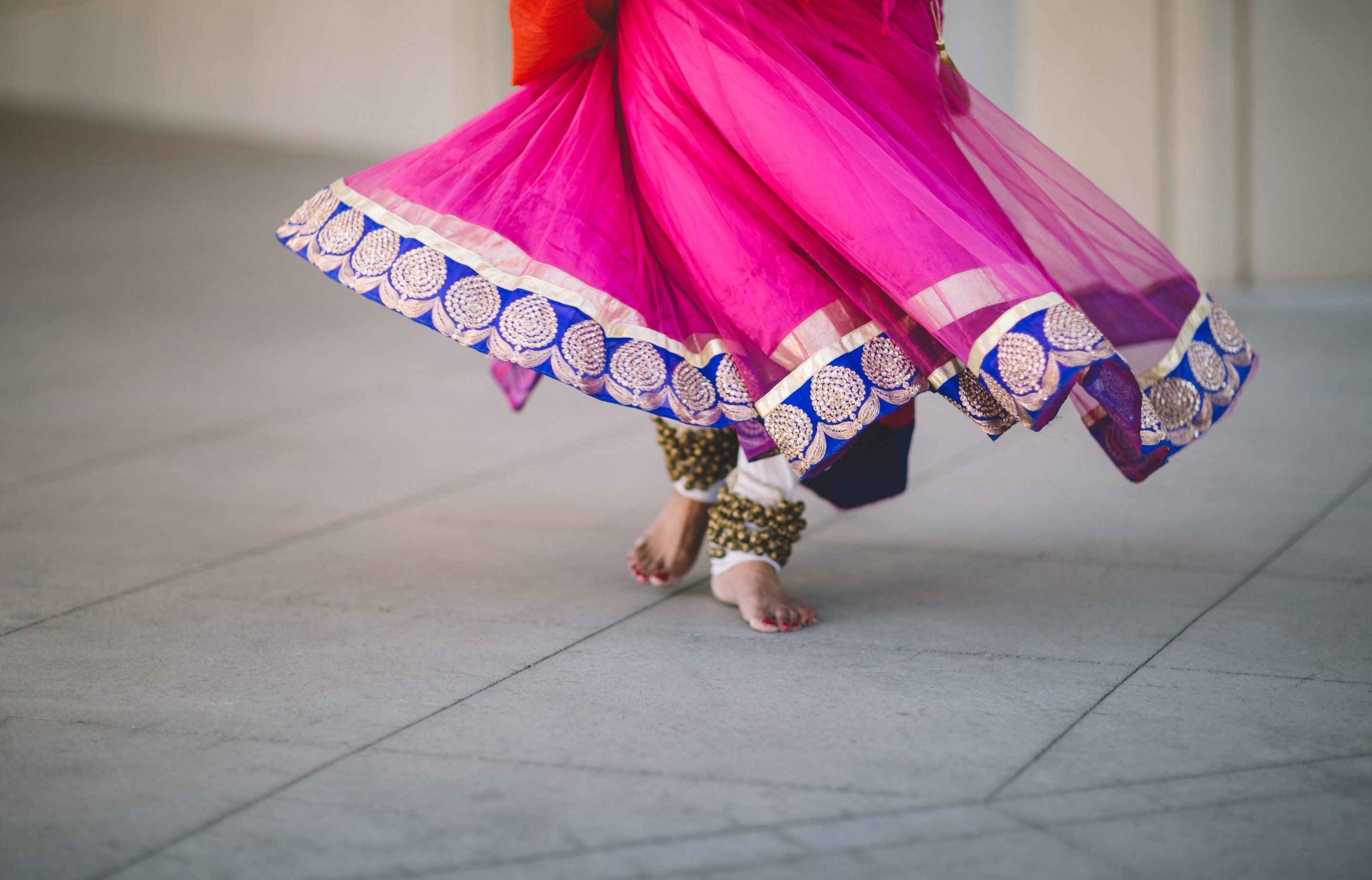
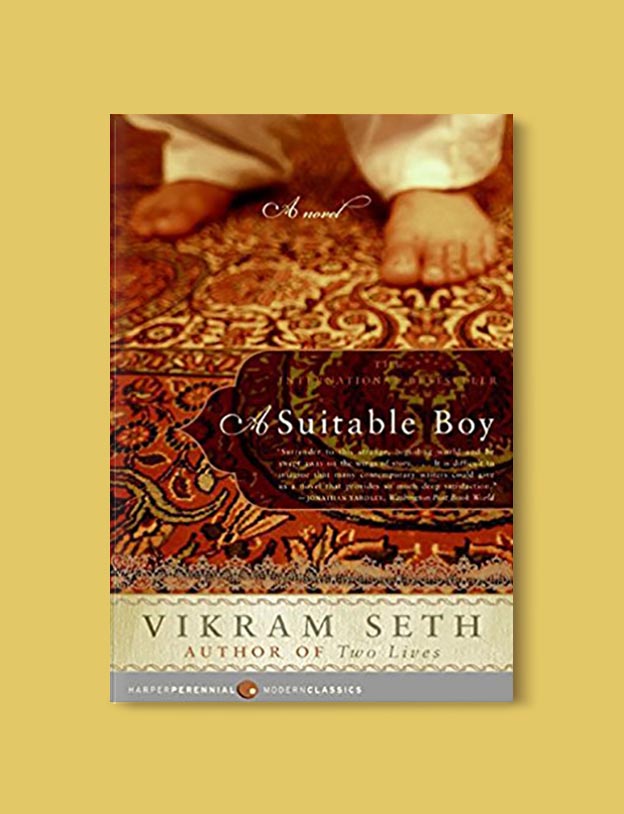
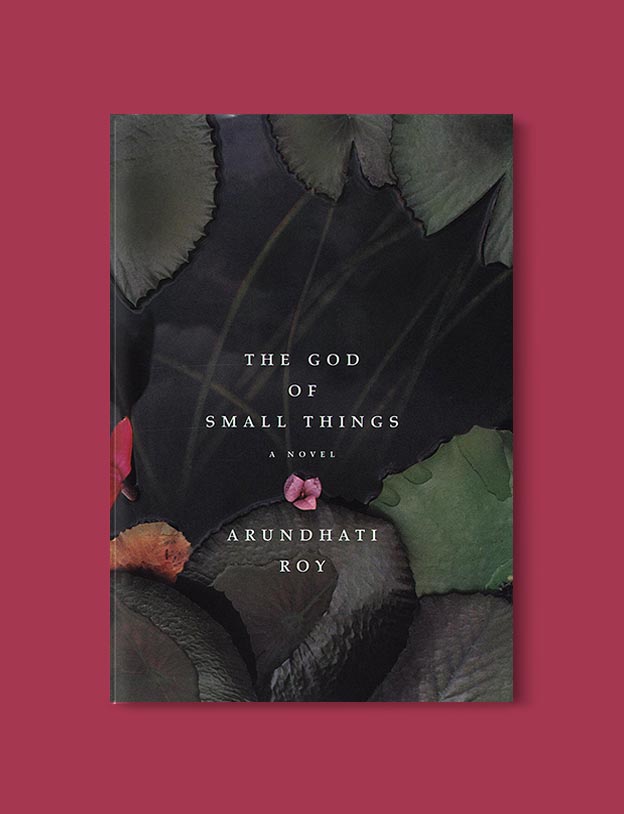
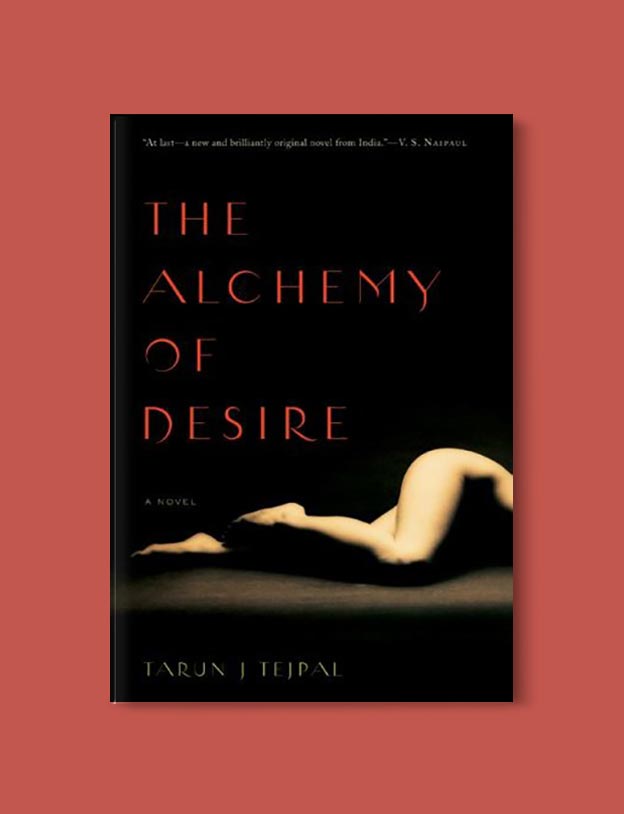
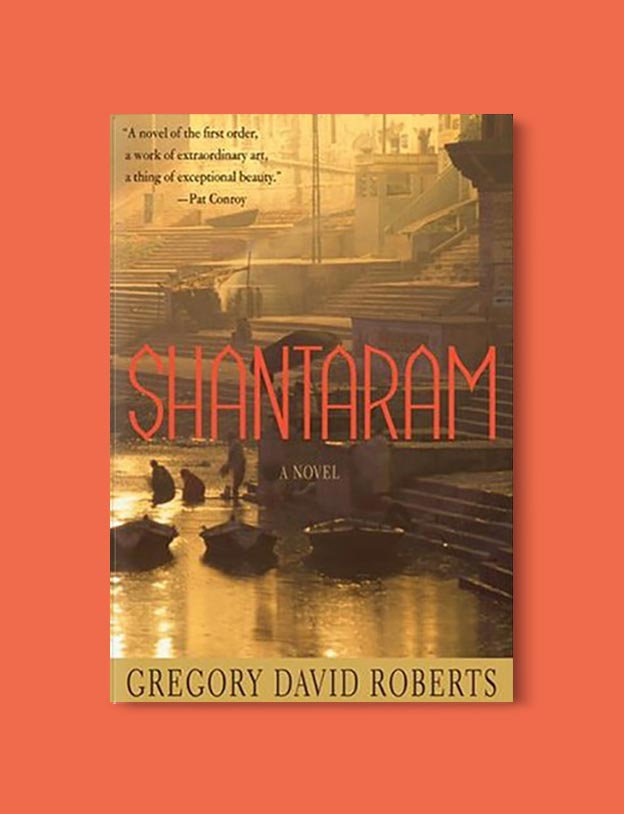
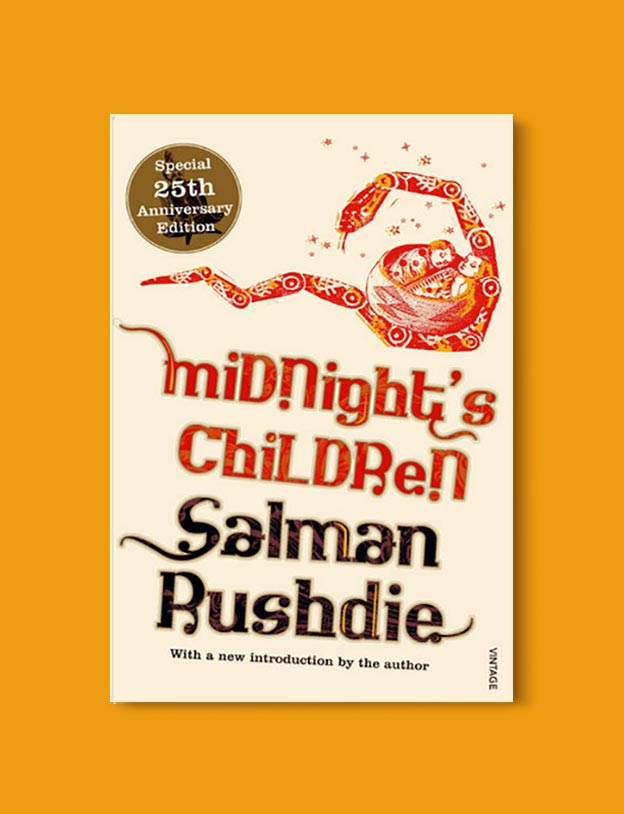
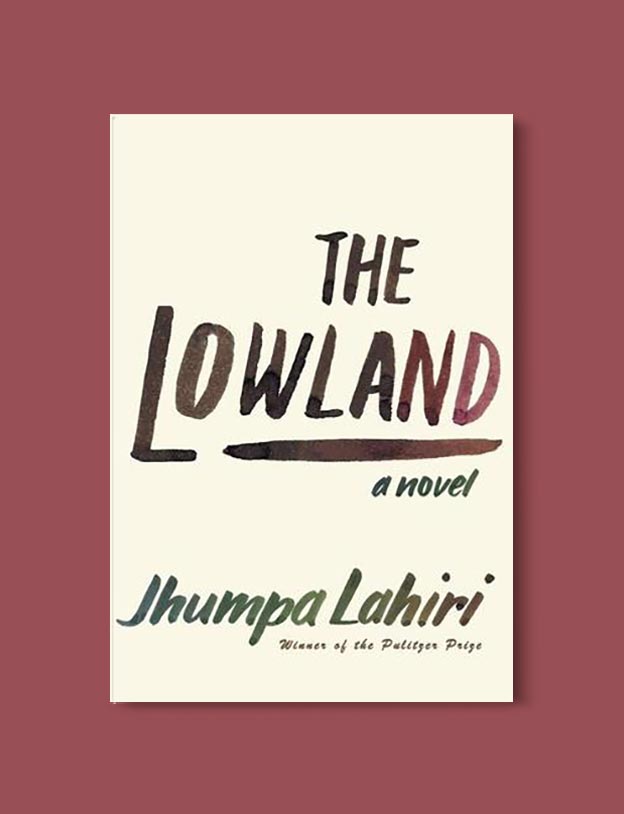
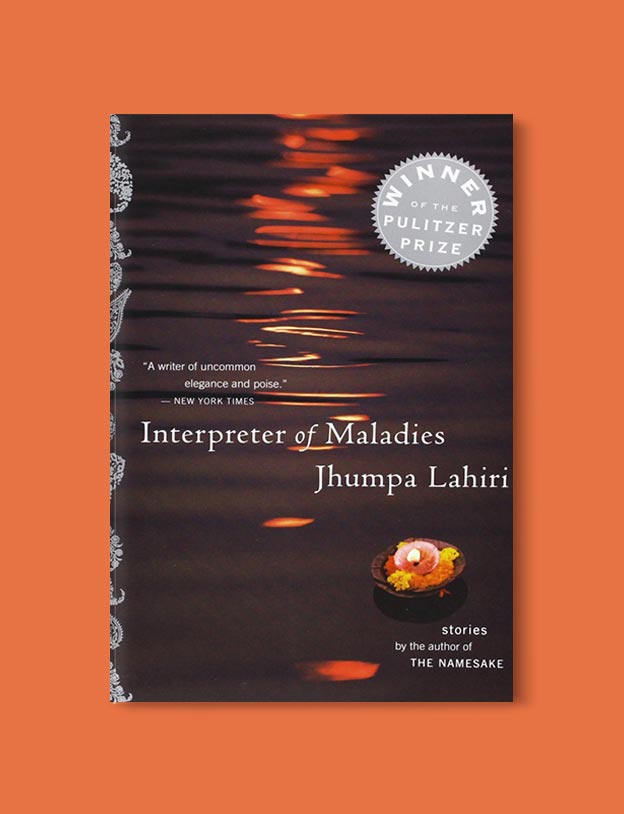
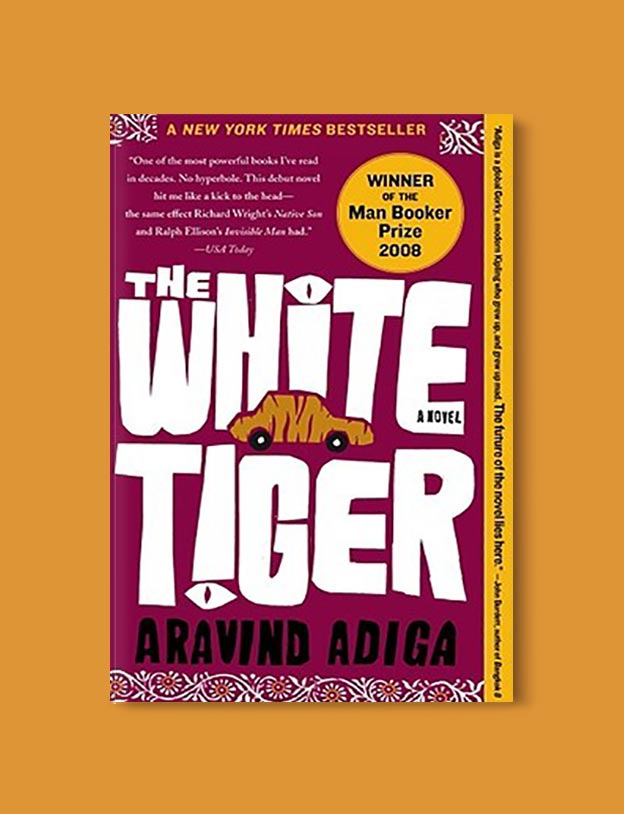
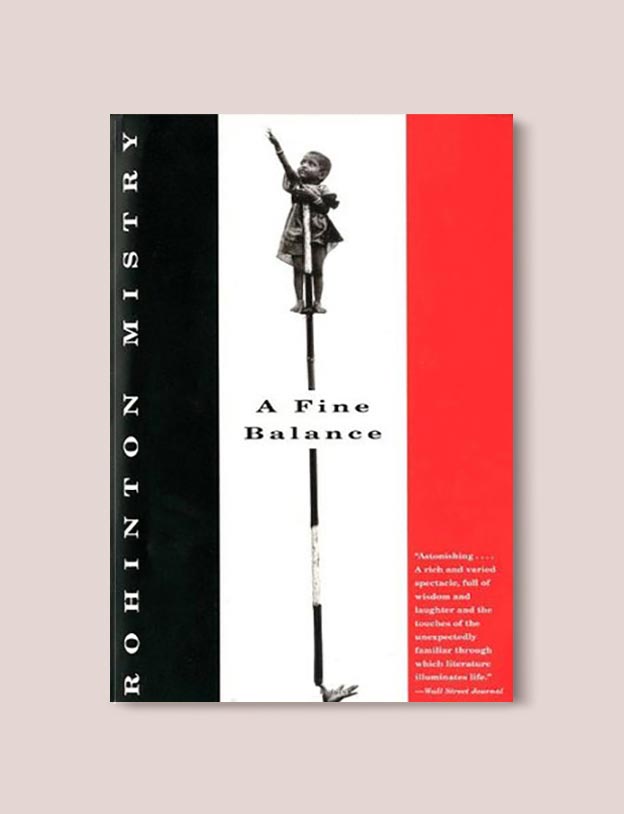
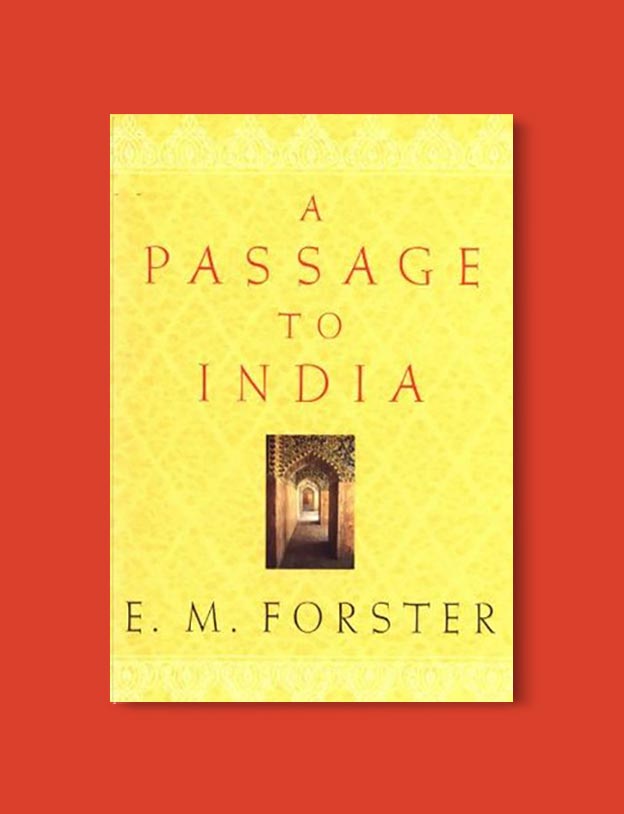
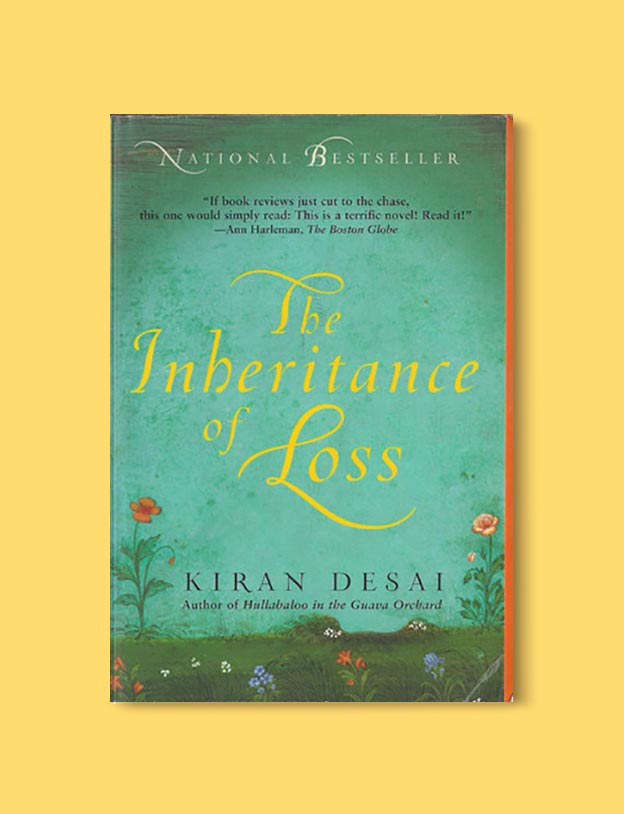
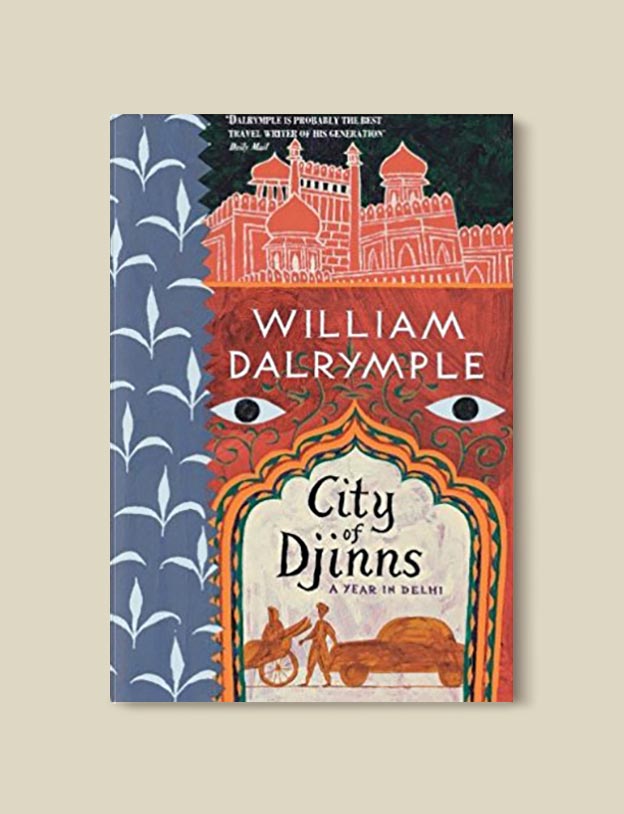

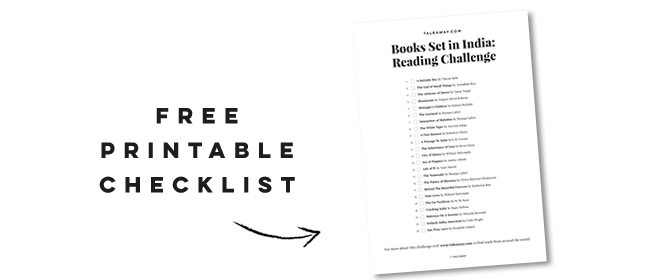


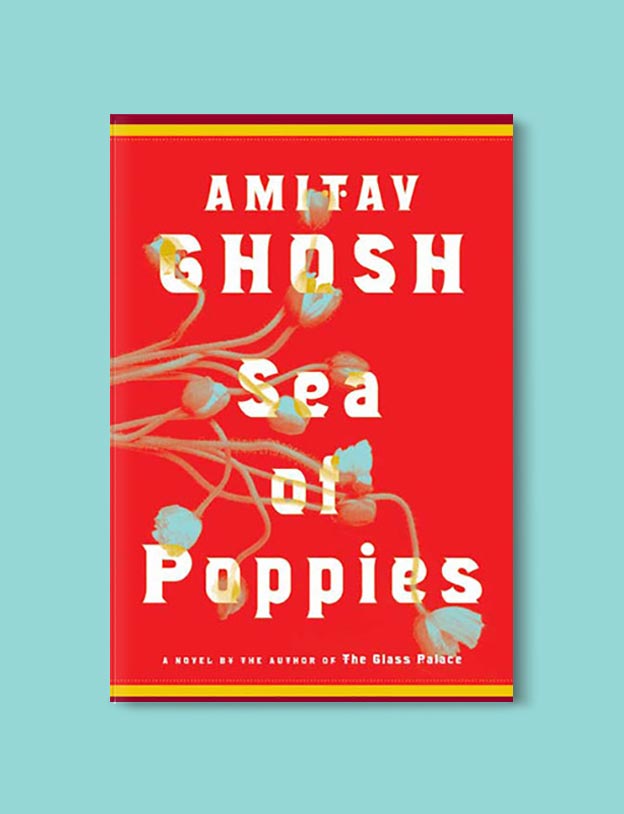
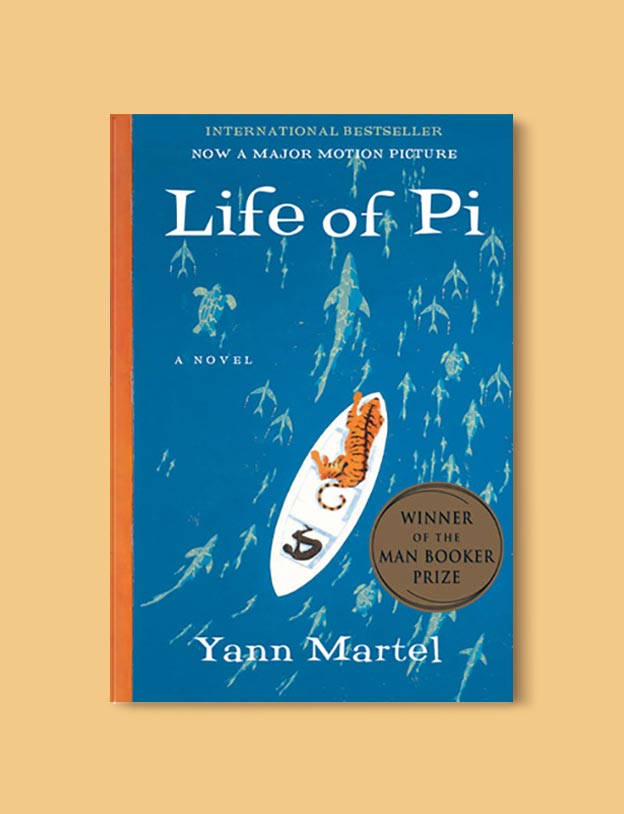
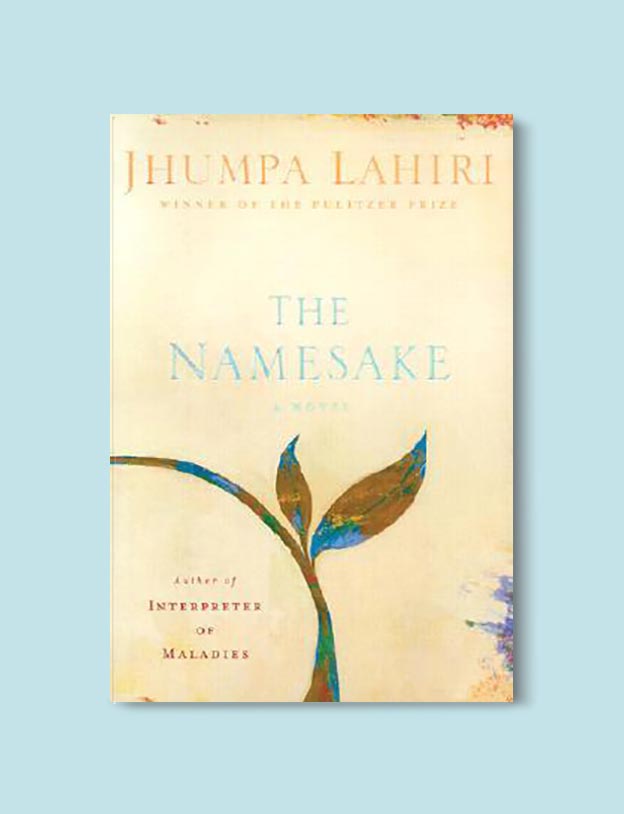
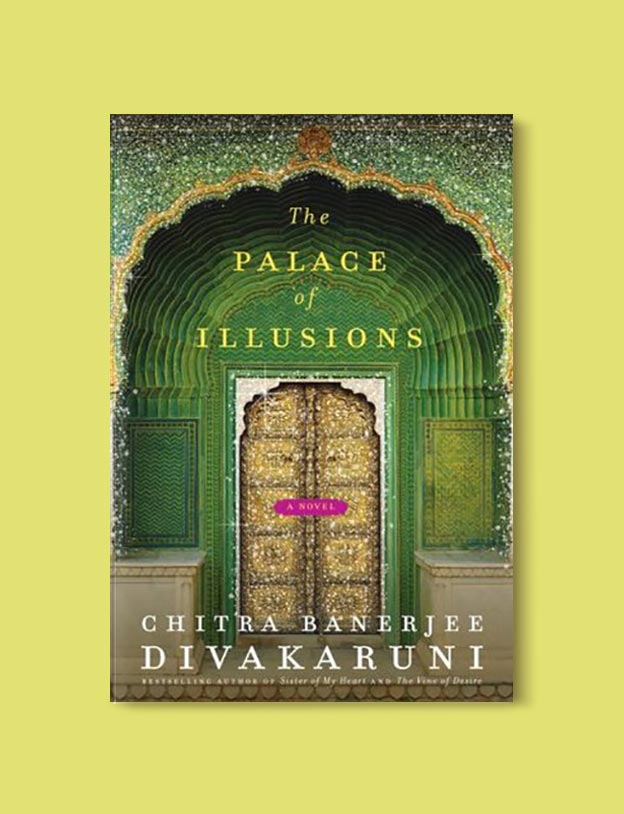
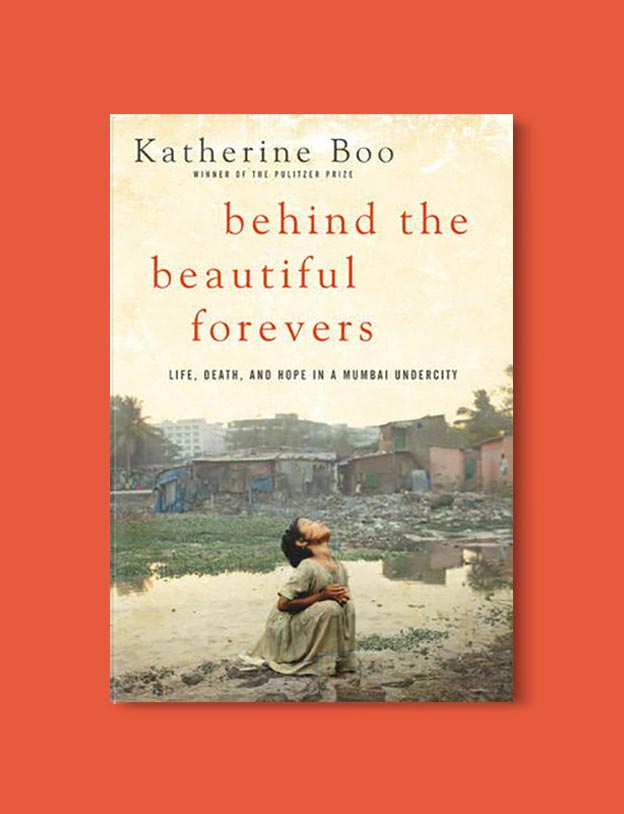
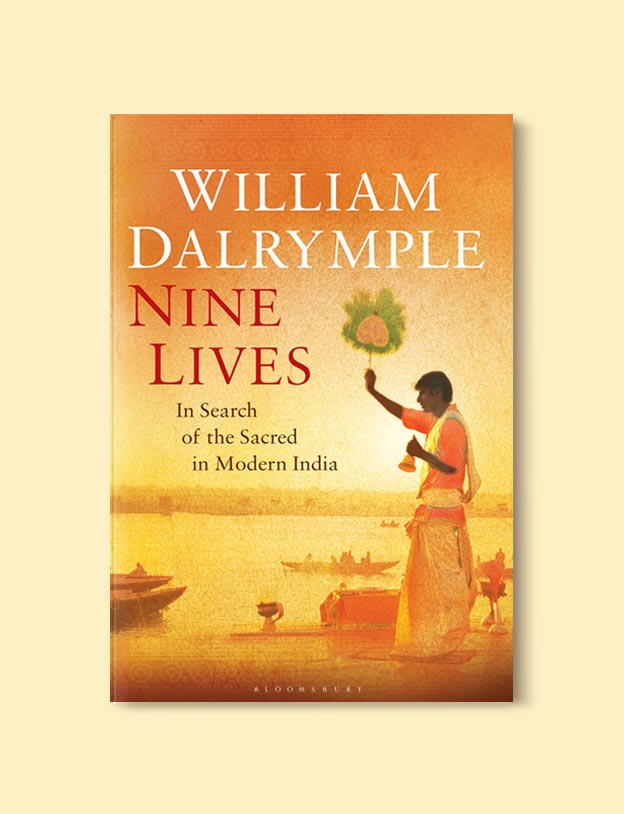
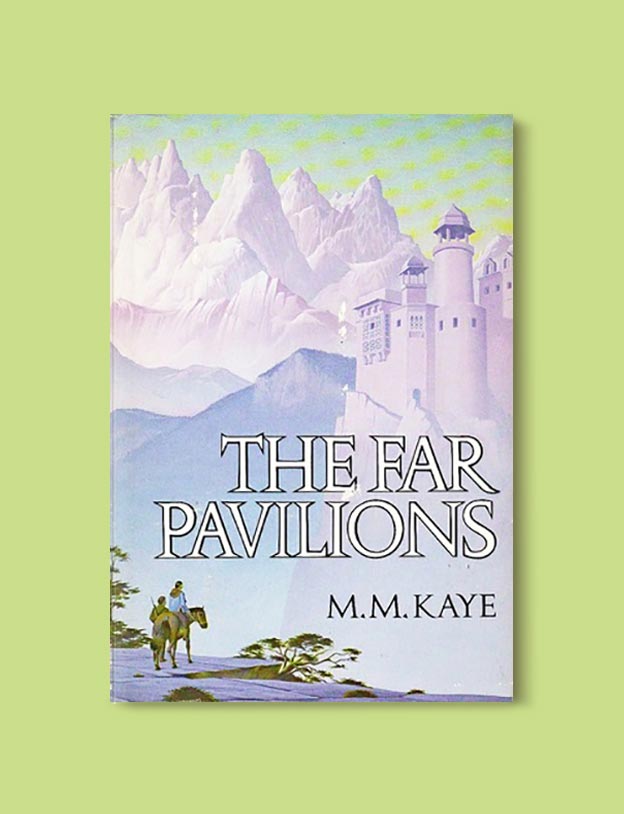
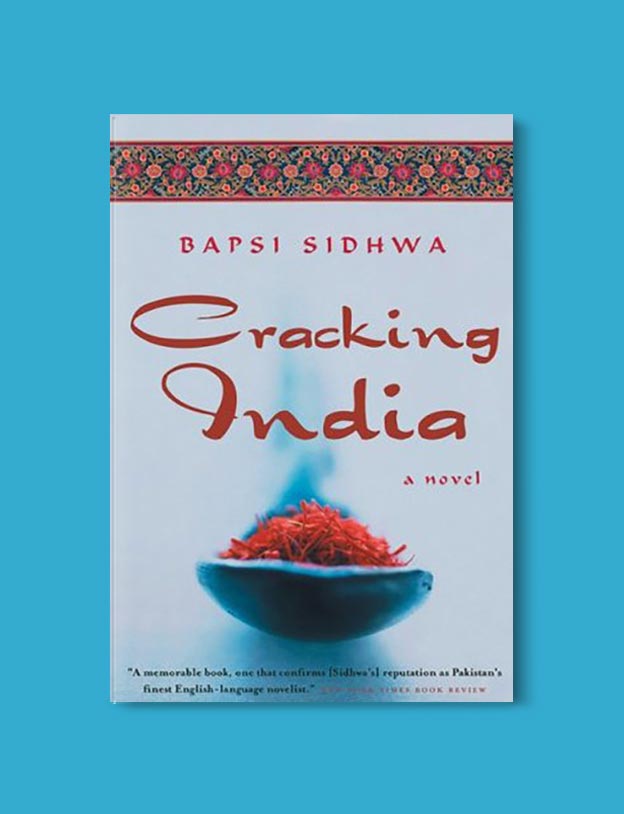
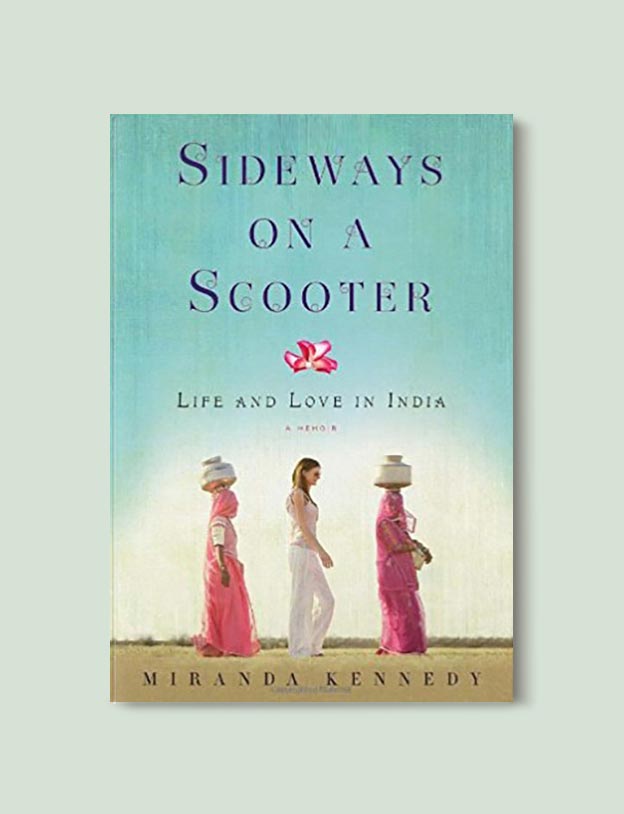
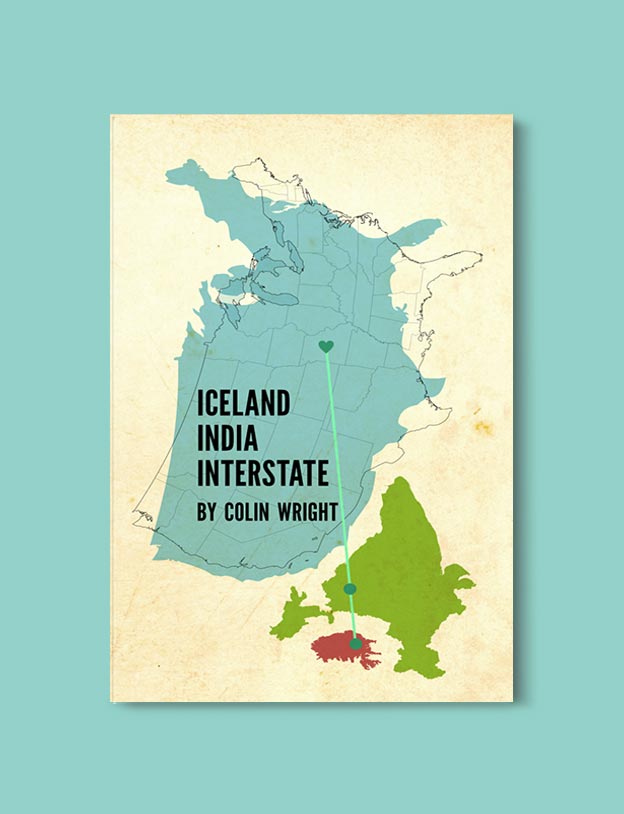
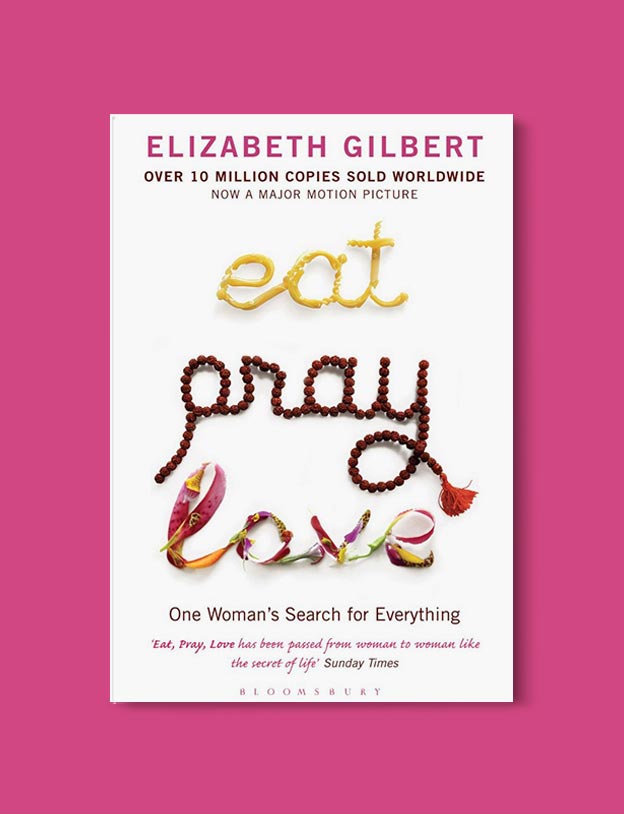
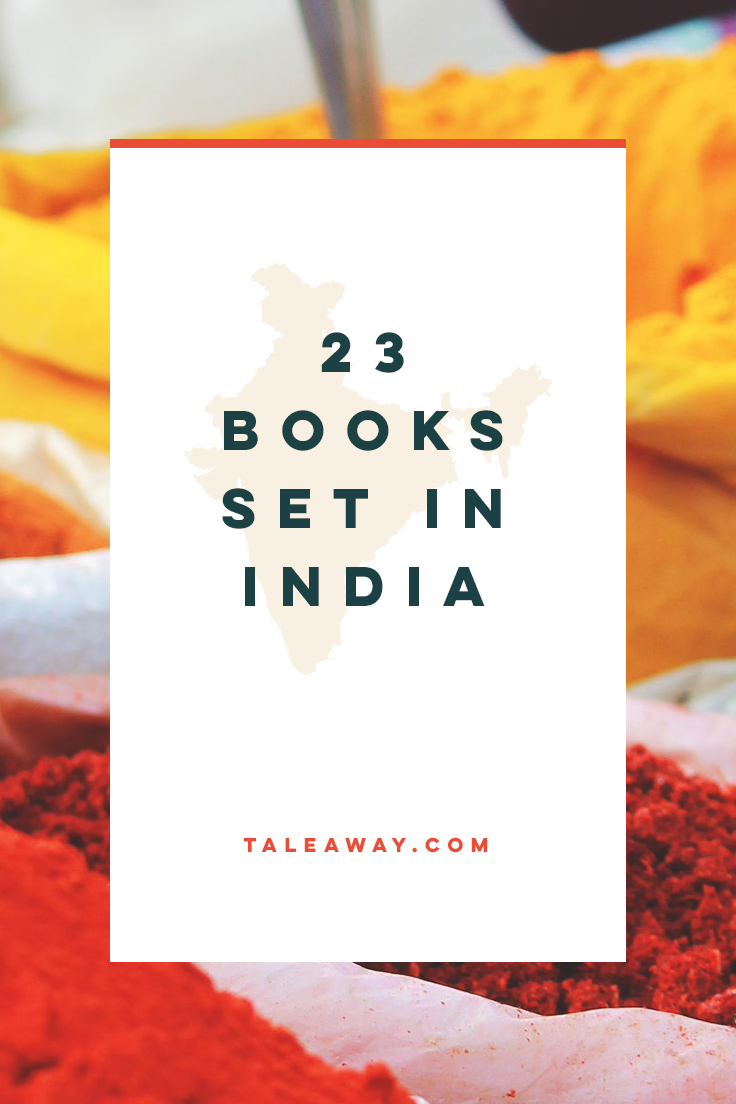
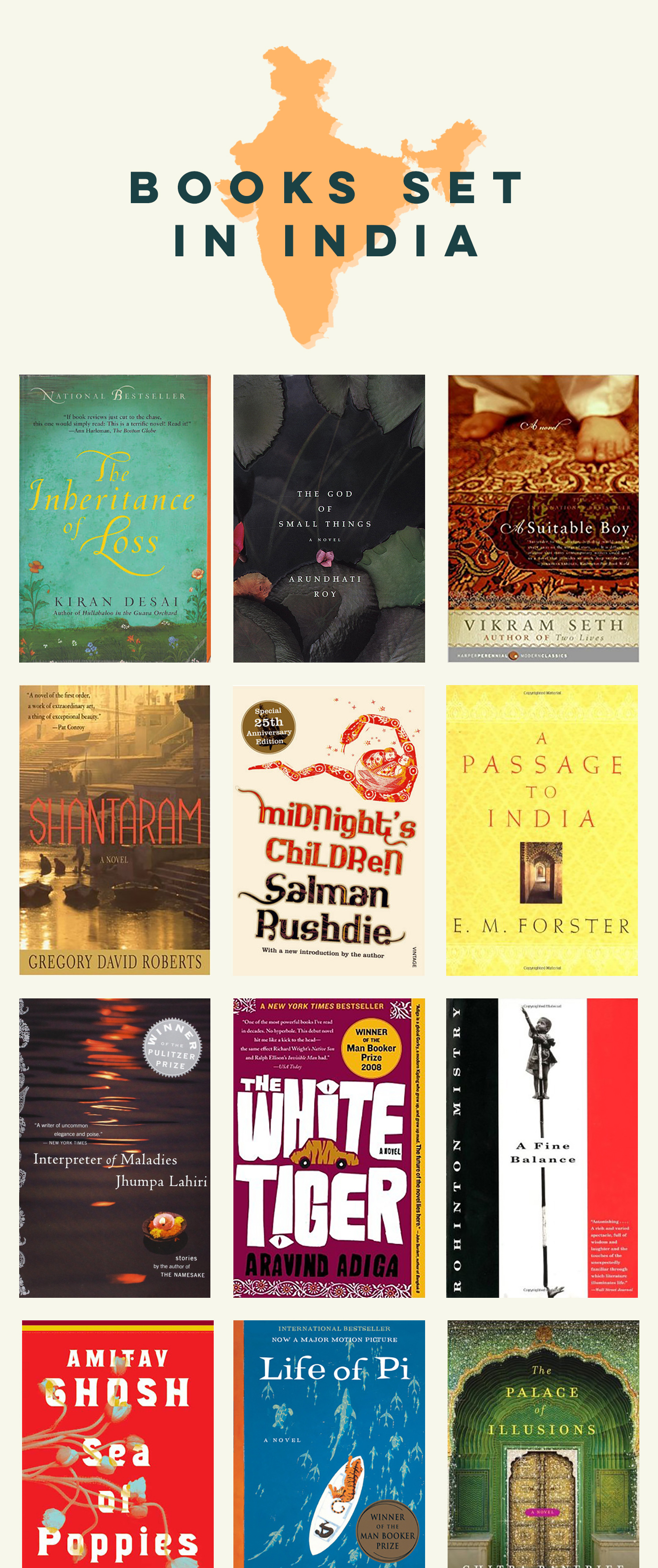
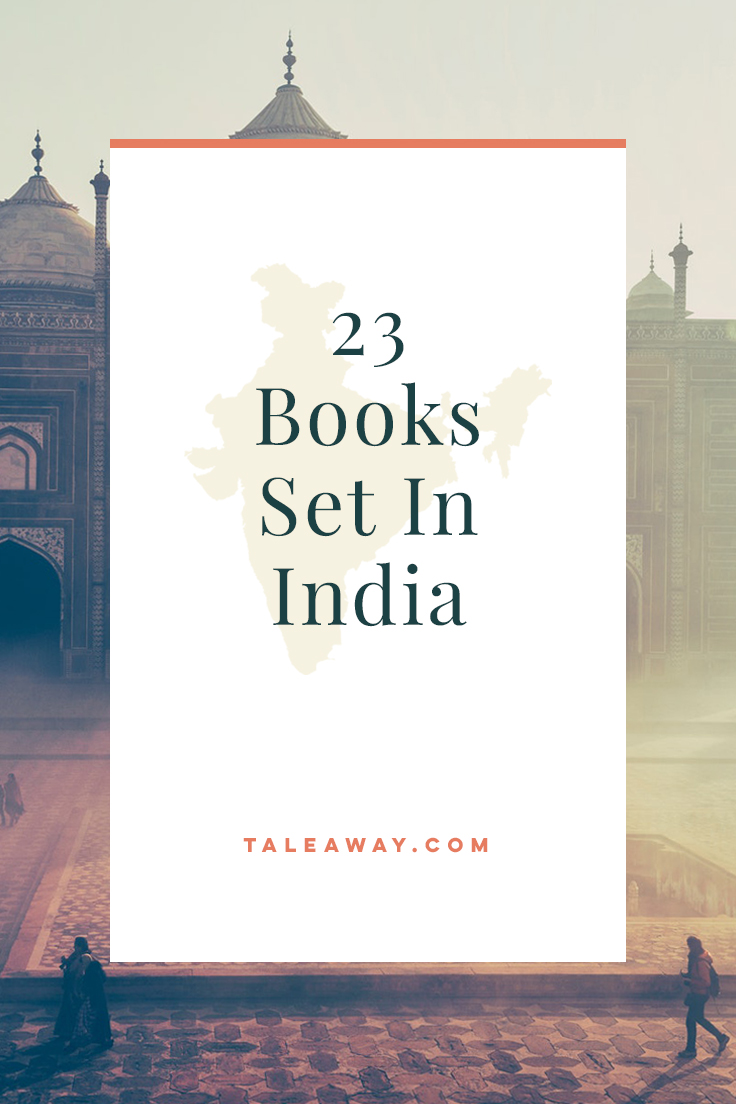
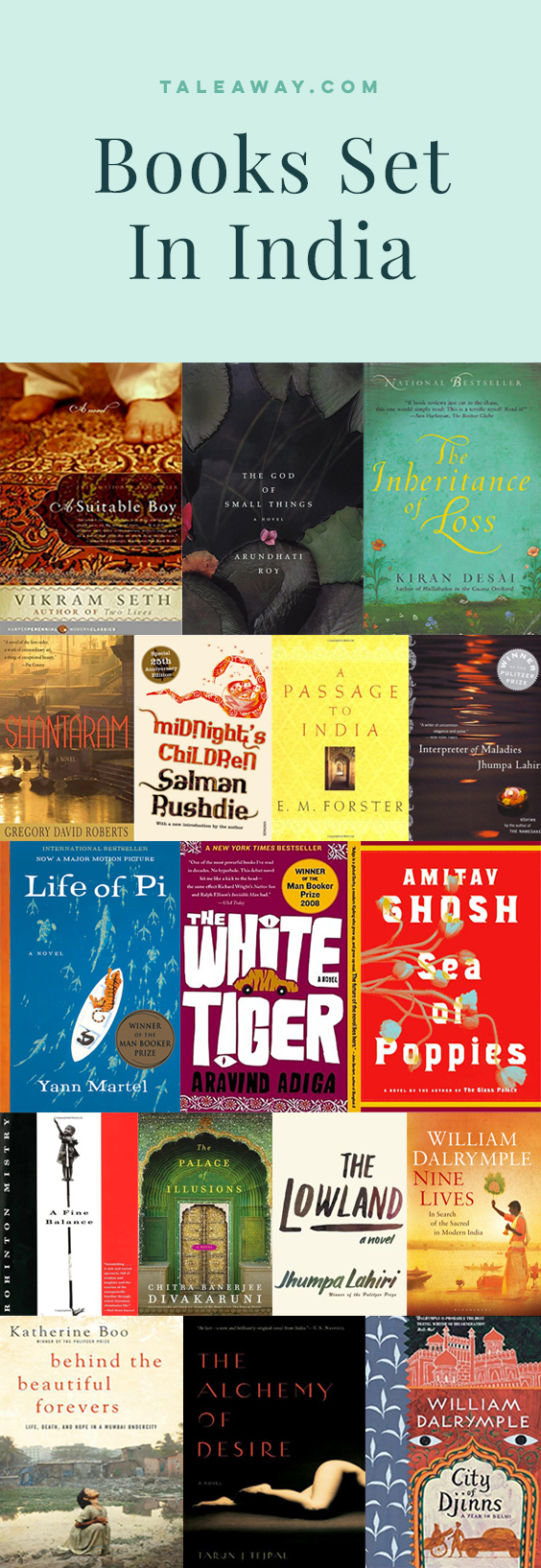
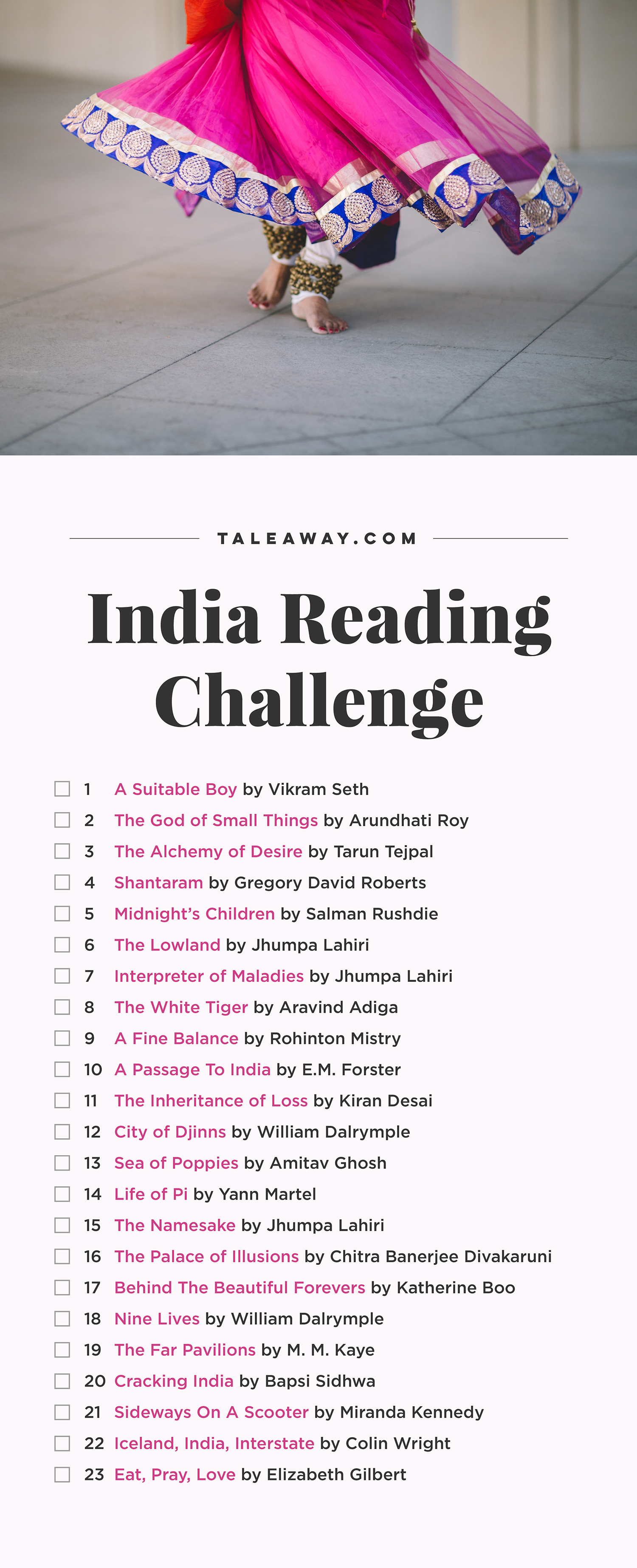
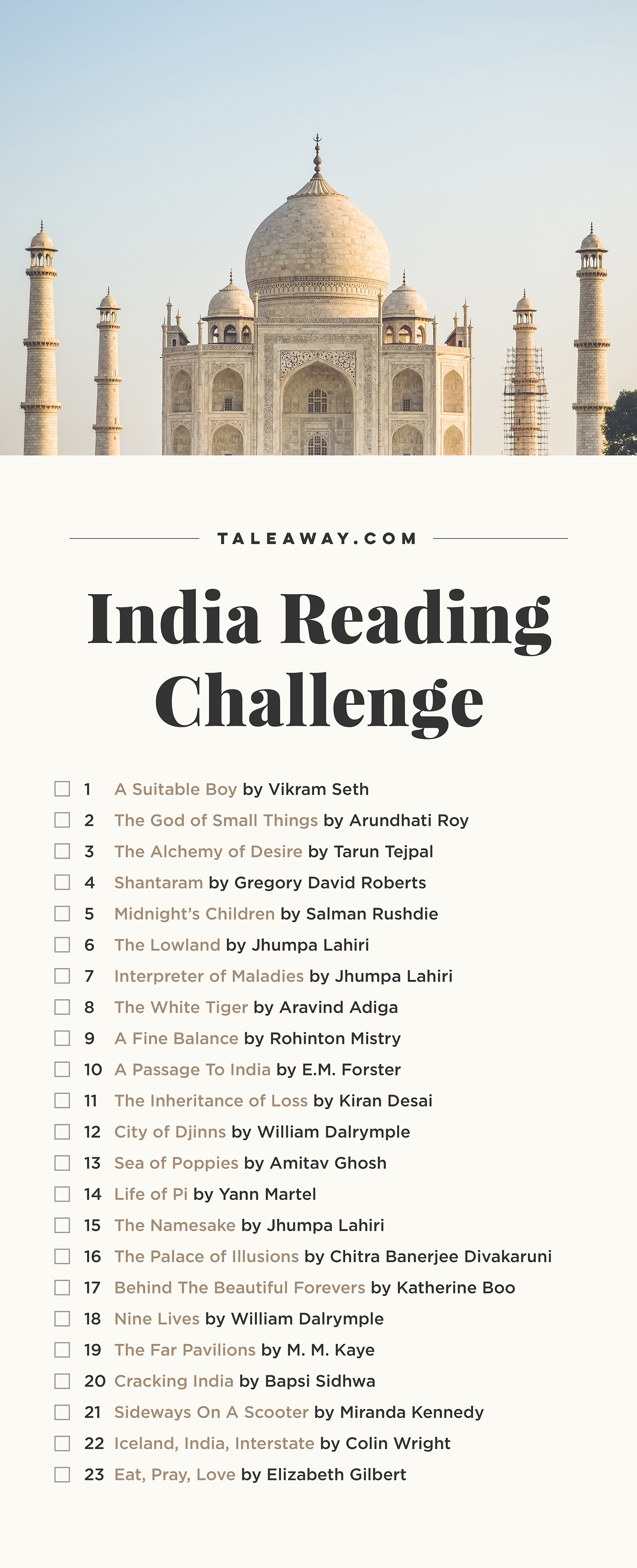
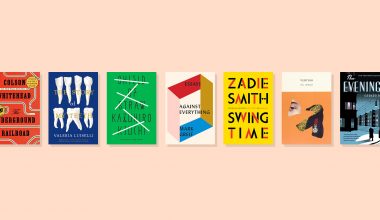
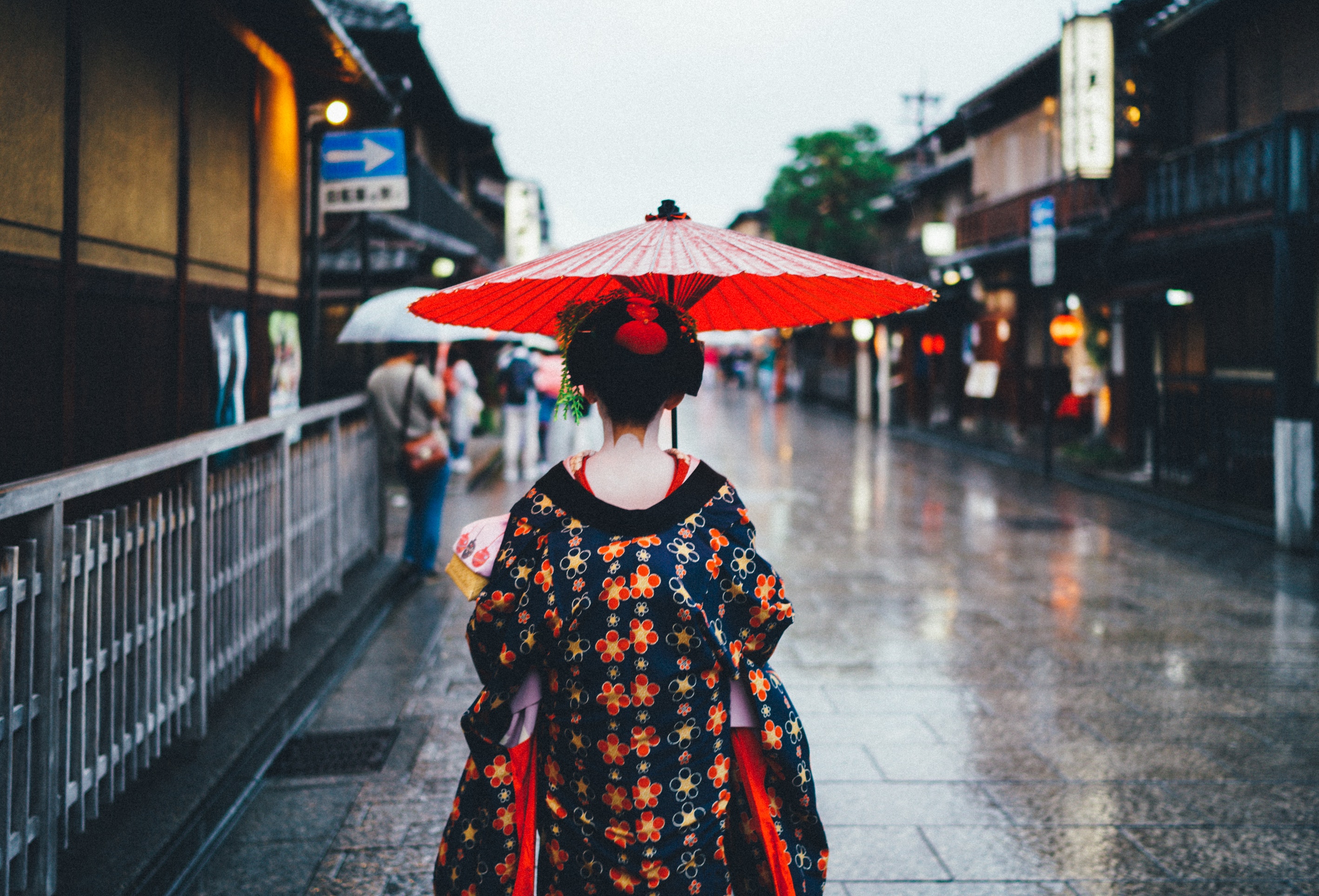





30 comments
I love books set in India! Rumer Godden wrote quite a few; I’ve read The Lady and the Unicorn, The River, and Black Narcissus (probably the best of her books I’ve read yet). I want to read Kingfishers Catch Fire.
Anita Desai is Kiran Desai’s mother. She wrote In Custody and Fire on the Mountain, both remarkable novels, as well as wonderful short stories.
There is Deep River by Shusako Endo. Don’t know if I can completely recommend that one but, like all the books of his that I’ve read, it haunts me.
I’m currently reading Passage to India. . . 🙂
Hi Monika! Thanks so much for all the incredible recommendations. Looks like I have a lot of reading to do! I did a little more research and Deep River sounds like a fascinating novel, so it’s high on my list now, thanks for the tip! Hope you’re enjoying Passage to India 🙂
Oh yes and The Far Cry by Emma Smith (she used old journals of her own trip to India to write it) is amazing!
Love stories like this! I discovered this wonderful quote from it, ‘I went down the gangplank at Bombay, and India burst upon me with the force of an explosion.’
And. . . Nectar in a Sieve by Kamala Markandaya deserves a revival. So intense, a profound “sweet and piercing” woman’s voice.
Can’t believe I hadn’t heard of this one before! Sounds like an especially moving novel.
RK Narayan is brilliant
Thanks for the suggestion Angela! I’ve not read any of his books yet, which is a shame! Do you recommend starting with Kocharethi or something else?
Hey, sorry to butt in – but the Narayan who wrote Kocharethi is completely different from the RK Narayan Angela speaks about. I recommend you read Kocharethi over the latter’s works, though. 🙂
Hi Rooh, thank you so much for correcting me, I didn’t realize I had mixed them up! For any curious readers, here is an overview of works by R. K. Narayan (1906 – 2001) and Narayan (born 1940).
Great idea for a post! <3
Charlotte| https://charlotteidek.com
Thanks so much Charlotte!
Hmmm…the description of Sideways on a Scooter is troubling…sounds like she wanted to “immerse herself in culture” but still on her own Western terms.
Hi SSM, thanks for your comment! I find this one of the most interesting parts of stories written from an expatriate perspective; it highlights cultural differences and the many varied ways that we all deal with them 🙂
I’ve read Shantaram several times, and it always takes my breath away. I can’t wait to look into the others.
Wow, that’s impressive! I really enjoyed Shantaram too. Thanks for commenting Mariah, I hope you find some other great reads in here too 😀
I too love books set in India! My favourite reads and I see have some new reads ahead of me! I am, though, trying to track down the title of one the I read when I was going to visit Kochi. I remember one of the character used to go to the Jewish temple there and look in the Delphi tiles to see where her sailor husband was in the world! Of course, I went to visit the temple but have lost track of the book! Would love if anyone could offer some suggestions. With many thanks!
Hi Louisa, I love a good book mystery like this! I didn’t know about the Paradesi Synagogue in Kochi, it sure has a fascinating history and I’d love to visit. While I’m not sure if I’ve found the book you’re looking for, the following titles deal with Jewish-Indian themes, are both fiction and non-fiction and are (mostly) set in Kochi. Fingers crossed one rings a bell! The Moor’s Last Sigh, The Last Jews of Kerala, Ruby of Cochin, My Mother’s Spice Cupboard, Burnt Bread and Chutney, Walled City, Book of Esther, Book of Rachel, Baumgartner’s Bombay. Please let us know if you find it!
Thank you for this website! I stumbled across it accidently, and it’s now a bookmarked favourite.
Could I please recommend some books for your India category?
Q&A (aka Slumdog Millionaire)
The Accidental Apprentice
Six Suspects
All are by Vikas Swarup, set in India and are equally well-written and seem to give an authentic portrayal of India. If you’ve watched Slumdog’; please don’t be put-off, I promise the book is much better!
Hi Becky, thanks so much for these wonderful recommendations by Vikas Swarup! I’ve put them all on my ever growing to-read list, I’d love to read Q & A, the original story that inspired Slumdog Millionaire. I hope you find some new stories to read here too! 🙂
Hey! I was searching a good book about India for our English lesson. Your post really helped me. But do you know some books bout Bollywood or where the Bollywood-stars are mentioned? thanks!
Hi Beyza! I’ve not read any books that mention Bollywood myself, but you might be interested in My So-Called Bollywood Life. I’m glad this list helped with your English lesson! 🙂
Lots of great books on the list but I’ll venture suggesting a few more that I have especially enjoyed. A Walk Across the Sun by Corban Addison involves sex and drug trafficking but also shows the power of love. Another good book set during the British Raj period and in the present is Heat and Dust by Ruth Prawer Jahbvala. An English woman, Olivia, falls for an Indian prince. Years later a relative goes to India to find out what happened to Olivia and also falls in love with an Indian man.
Hi Wendy, thanks so much for sharing these reads! I’m itching to read another Indian novel right now, so thank you for the inspiration 🙂
Another great book from M.M. Kaye, Shadow of the Moon. This along with The Far Pavilions have been my two favorite books ever. Thank you so much for these new suggestions. I can’t wait to read them.
Hi Jan! Wow! As your two favorite books ever, that is a very strong recommendation indeed. I’ve put Shadow of the Moon at the top of my reading list, thanks so much for your comment and suggestion. 🙂
The Color of Our Sky by Amita Trasi
Hi Gayle – thanks so much for the recommendation, this one has incredible reviews! 🙂
I do believe any portrait of India is woefully incomplete without the works of R. K. Narayan (The Guide is a good starting point).
Hi Rohit! A few other readers have also suggested R.K. Narayan, but I must admit I wasn’t sure where to get started. Thanks so much for your suggestion! 🙂